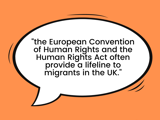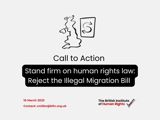The right to life may be at risk if the Home Office does not carry out proper investigations into deaths of people in immigration detention.
Oscar was being detained in an Immigration Removal Centre when he died suddenly from a haemorrhage caused by high blood pressure. He had previously had a high blood pressure reading and tried to see a doctor but had not been able to due to multiple failures in the running of the Removal Centre and following the healthcare policy. Oscar’s friend, Ahmed, had important information about his death that would enable a proper investigation to be carried out but the Home Office tried to deport him before he could help. The court found that this would be a breach of the Article 2 duty to investigate deaths in custody of the State.



